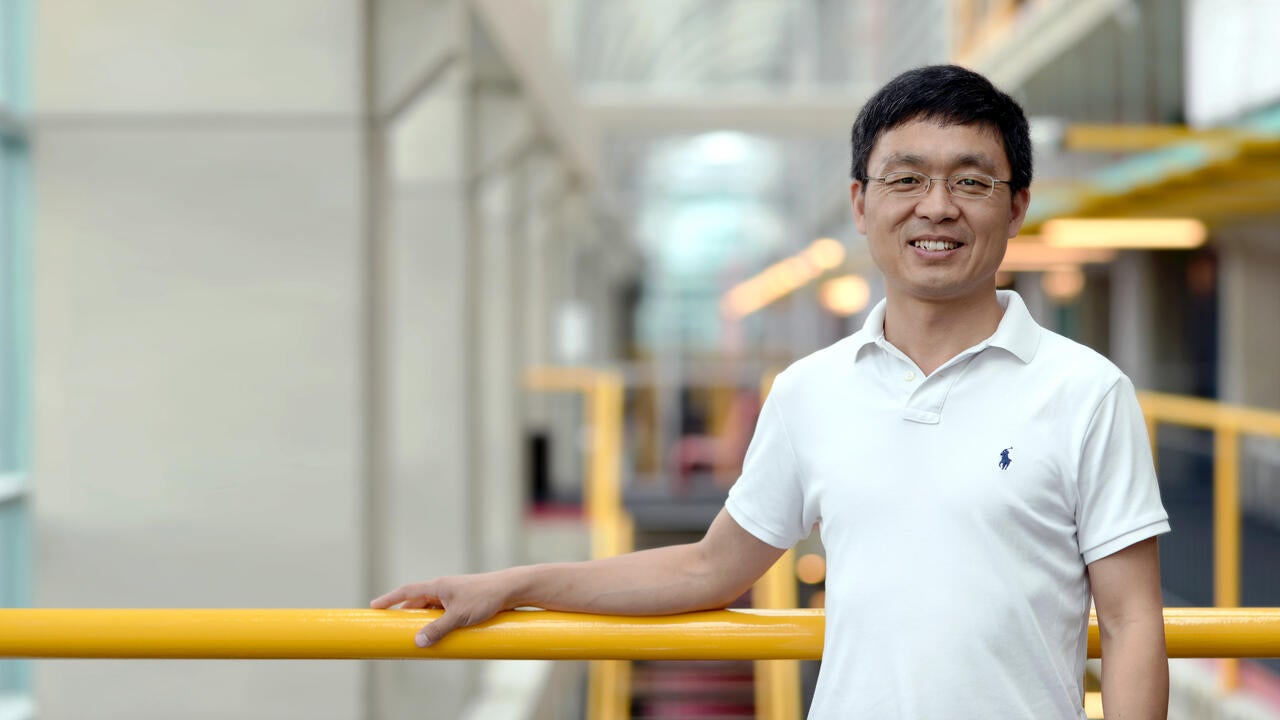
Waterloo tech profiles antibodies in blood of COVID-19 patients
Rapid Novor secures $5-million USD as its team works to decode antibodies for potential medical treatments for COVID-19 and other illnesses

Rapid Novor secures $5-million USD as its team works to decode antibodies for potential medical treatments for COVID-19 and other illnesses
By Beth Gallagher University RelationsA world-leading University of Waterloo spinoff company, that decodes blood samples for potential treatments for illnesses like cancer and COVID-19, is expanding operations with the help of a $5-million USD investment.
Bin Ma, a University of Waterloo computer science professor who co-founded Rapid Novor in 2015, says the company’s technology is the most advanced in the world when it comes to deciphering the complex workings of antibody proteins, a process called sequencing.
Among other projects, Ma’s team is currently decoding the antibodies in the blood of patients who are recovering from COVID-19 with the hopes that the information can be used to develop new treatments. The National Research Council of Canada, through its Industrial Research Assistance Program, has also given the Rapid Novor team a grant to support the coronavirus work.
“The long-term goal is to profile all antibodies in human blood and ultimately provide a brand new way to diagnose disease,” Ma says. “Compared to other protein sequencing technologies, we are faster and more accurate, allowing more complex samples. We are the only team in the world that can sequence antibody proteins from blood directly.”
The recent $5-million USD financing round, led by Co-Win Venture, will allow Rapid Novor, which just tripled its office space at Catalyst 137 in Kitchener, Ont., to hire more scientists.
“The team’s track record for innovation and their ambitious goal to decode immunity attracted us,” said Eric Wen, a Co-Win Venture Partner. “Rapid Novor has built a team of world-class scientists and practitioners in proteomics and bioinformatics. Their unique technologies will have profound impact in the life sciences industry. We are thrilled to be part of this innovative team.”
Ma says his team has already developed a sensitive, non-invasive blood test to monitor patients with multiple myeloma, a type of blood cancer growing in bone marrow. The test detects a cancer relapse six months earlier than standard medical care.

Read more
Here are the people and events behind some of this year’s most compelling Waterloo stories

Read more
From co-op to startup: Waterloo students develop an AI platform that uses real-time data for wildfire prediction and early prevention

Read more
Meet the five exceptional graduate students taking the convocation stage as Class of 2024 valedictorians
The University of Waterloo acknowledges that much of our work takes place on the traditional territory of the Neutral, Anishinaabeg, and Haudenosaunee peoples. Our main campus is situated on the Haldimand Tract, the land granted to the Six Nations that includes six miles on each side of the Grand River. Our active work toward reconciliation takes place across our campuses through research, learning, teaching, and community building, and is co-ordinated within the Office of Indigenous Relations.